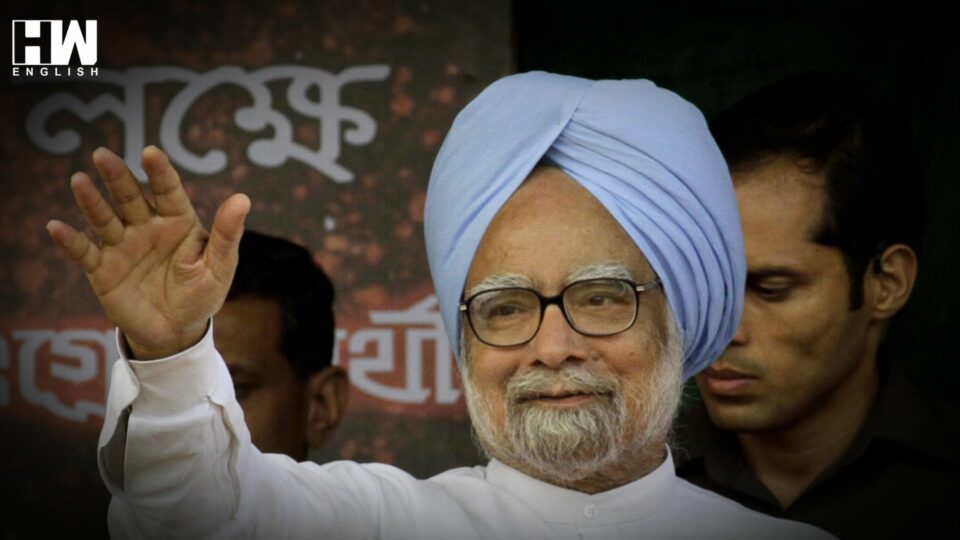As the mortal remains of Dr Manmohan Singh ji were consigned to flames at the Nigam Bodh Ghat, an immeasurable quantum of truth remains untold, many of which are routed through people closely known to him.
Between the 1970s and 1990s, he held responsible positions such as chief economic advisor (1972-1976), governor of the Reserve Bank of India (1982-1985), and head of the Planning Commission (1985-1987).
In 1991, Mr Singh was inducted into the finance ministry amidst a fiscal deficit close to 8.5% of the GDP, a massive balance of payment deficit, and a current account deficit close to 3.5% of India’s GDP. The foreign reserves were barely $ I billion, enough to fund two weeks of imports. It was a dreadful situation that only a seasoned economist could manoeuvre. However, in 2009, the reserves touched $600 billion!!
Also Read: Remembering Manmohan Singh: Economic Reforms, Legacy, Poetic Banters
As finance minister, Mr Manmohan Singh abolished the Licence Raj, impeding economic growth. This action provided a fillip to speedy development and dramatic growth prospects. Regrettably, despite the commendable growth-oriented steps, Congress fared poorly in the 1996 polls.
His aggressive stance, which had widely gained acceptance, is his insistence on endorsing the US nuclear deal. Despite the agreement finding severe resistance from the left, it also found aversion from many of his support groups and reluctance from his own Congress party.
The left decided to boycott support for the government, thereby leading to a no-confidence motion mooted by the BJP. The government had to resort to the infamous cash-for-votes scandal to stay afloat. However, it could survive the 2008 vote of confidence by that.
India’s endorsement of the deal provided us with unlimited gains from the nuclear energy component. Our prominent objective was multiplying atomic power generation, spurring our economic growth many times. Dr Manmohan Singh could have visualised the growth aspect more clearly, and Congress defied the motion despite the cash-for-votes allegation against the party.
Mr Manmohan Singh was appointed PM in 2004 by the Chairperson of the UPA, Sonia Gandhi. His primary motive was to employ many able-bodied people to build the nation’s GDP and enhance the purchasing power of his countrymen and women.
His vision entailed enacting the National Employment Guarantee Act (MGNREGA) in 2005, enabling job opportunities for the unemployed. The scheme has been in place to date, utilising the services of scores of jobless individuals. In 2007, India witnessed a GDP growth rate of 9%, growing steadily as the second-largest economy in the world.
In 2004, he initiated the National Rural Health Mission, which provides affordable health care to rural areas, and the Unique Identification Authority (UIDAI), which saw the birth of Aadhar in India. Right to Information (RTI) was another of his missions that empowered the Indian citizenry to seek information they had the right to know through the respective offices where the data is stored.
Our constitution guarantees a series of rights, including the Right to Food and the Right to Education. Eight IITs were opened in AP, Bihar, Gujarat, Orissa, Punjab, MP, Rajasthan, and Himachal Pradesh.
In 2009, although the UPA returned with a resounding mandate, several corruption charges were levelled against various ministers, including the organisation of the 2010 Commonwealth Games, the 2G Spectrum allocation case, and coal block allocation. As his term ended, Manmohan Singh opted out of the race for PM.
Mr Manmohan Singh will remain close to the hearts of many Indians, notwithstanding their political inclinations and affiliations. The immensely crowded Nigambodh Ghat bears testimony to the love and affection people had for their leader.
A person who drove his Maruti 800 lived a simple life but avoided undeserved glory, as he felt, dedicating his life to serving his country. My heartfelt salutation!!
As an independent media platform, we do not take advertisements from governments and corporate houses. It is you, our readers, who have supported us on our journey to do honest and unbiased journalism. Please contribute, so that we can continue to do the same in future.

